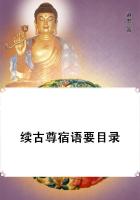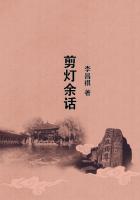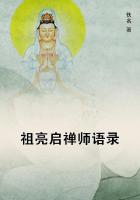BY AN EXTENSION of the like precaution kings are sometimes forbidden ever to leave their palaces; or, if they are allowed to do so, their subjects are forbidden to see them abroad. The fetish king of Benin, who was worshipped as a deity by his subjects, might not quit his palace. After his coronation the king of Loango is confined to his palace, which he may not leave. The king of Onitsha does not step out of his house into the town unless a human sacrifice is made to propitiate the gods: on this account he never goes out beyond the precincts of his premises. Indeed we are told that he may not quit his palace under pain of death or of giving up one or more slaves to be executed in his presence. As the wealth of the country is measured in slaves, the king takes good care not to infringe the law. Yet once a year at the Feast of Yams the king is allowed, and even required by custom, to dance before his people outside the high mud wall of the palace. In dancing he carries a great weight, generally a sack of earth, on his back to prove that he is still able to support the burden and cares of state. Were he unable to discharge this duty, he would be immediately deposed and perhaps stoned. The kings of Ethiopia were worshipped as gods, but were mostly kept shut up in their palaces. On the mountainous coast of Pontus there dwelt in antiquity a rude and warlike people named the Mosyni or Mosynoeci, through whose rugged country the Ten Thousand marched on their famous retreat from Asia to Europe. These barbarians kept their king in close custody at the top of a high tower, from which after his election he was never more allowed to descend. Here he dispensed justice to his people; but if he offended them, they punished him by stopping his rations for a whole day, or even starving him to death. The kings of Sabaea or Sheba, the spice country of Arabia, were not allowed to go out of their palaces; if they did so, the mob stoned them to death. But at the top of the palace there was a window with a chain attached to it. If any man deemed he had suffered wrong, he pulled the chain, and the king perceived him and called him in and gave judgment.
5. Taboos on Leaving Food over
AGAIN, magic mischief may be wrought upon a man through the remains of the food he has partaken of, or the dishes out of which he has eaten. On the principles of sympathetic magic a real connexion continues to subsist between the food which a man has in his stomach and the refuse of it which he has left untouched, and hence by injuring the refuse you can simultaneously injure the eater. Among the Narrinyeri of South Australia every ***** is constantly on the look-out for bones of beasts, birds, or fish, of which the flesh has been eaten by somebody, in order to construct a deadly charm out of them. Every one is therefore careful to burn the bones of the animals which he has eaten, lest they should fall into the hands of a sorcerer. Too often, however, the sorcerer succeeds in getting hold of such a bone, and when he does so he believes that he has the power of life and death over the man, woman, or child who ate the flesh of the animal. To put the charm in operation he makes a paste of red ochre and fish oil, inserts in it the eye of a cod and a small piece of the flesh of a corpse, and having rolled the compound into a ball sticks it on the top of the bone. After being left for some time in the bosom of a dead body, in order that it may derive a deadly potency by contact with corruption, the magical implement is set up in the ground near the fire, and as the ball melts, so the person against whom the charm is directed wastes with disease; if the ball is melted quite away, the victim will die. When the bewitched man learns of the spell that is being cast upon him, he endeavours to buy the bone from the sorcerer, and if he obtains it he breaks the charm by throwing the bone into a river or lake. In Tana, one of the New Hebrides, people bury or throw into the sea the leavings of their food, lest these should fall into the hands of the disease-makers. For if a disease-maker finds the remnants of a meal, say the skin of a banana, he picks it up and burns it slowly in the fire. As it burns, the person who ate the banana falls ill and sends to the disease-maker, offering him presents if he will stop burning the banana skin. In New Guinea the natives take the utmost care to destroy or conceal the husks and other remains of their food, lest these should be found by their enemies and used by them for the injury or destruction of the eaters.
Hence they burn their leavings, throw them into the sea, or otherwise put them out of harm's way.
From a like fear, no doubt, of sorcery, no one may touch the food which the king of Loango leaves upon his plate; it is buried in a hole in the ground. And no one may drink out of the king's vessel. In antiquity the Romans used immediately to break the shells of eggs and of snails which they had eaten, in order to prevent enemies from ****** magic with them. The common practice, still observed among us, of breaking egg-shells after the eggs have been eaten may very well have originated in the same superstition.
The superstitious fear of the magic that may be wrought on a man through the leavings of his food has had the beneficial effect of inducing many savages to destroy refuse which, if left to rot, might through its corruption have proved a real, not a merely imaginary, source of disease and death. Nor is it only the sanitary condition of a tribe which has benefited by this superstition; curiously enough the same baseless dread, the same false notion of causation, has indirectly strengthened the moral bonds of hospitality, honour, and good faith among men who entertain it. For it is obvious that no one who intends to harm a man by working magic on the refuse of his food will himself partake of that food, because if he did so he would, on the principles of sympathetic magic, suffer equally with his enemy from any injury done to the refuse. This is the idea which in primitive society lends sanctity to the bond produced by eating together; by participation in the same food two men give, as it were, hostages for their good behaviour; each guarantees the other that he will devise no mischief against him, since, being physically united with him by the common food in their stomachs, any harm he might do to his fellow would recoil on his own head with precisely the same force with which it fell on the head of his victim. In strict logic, however, the sympathetic bond lasts only so long as the food is in the stomach of each of the parties.
Hence the covenant formed by eating together is less solemn and durable than the covenant formed by transfusing the blood of the covenanting parties into each other's veins, for this transfusion seems to knit them together for life.















